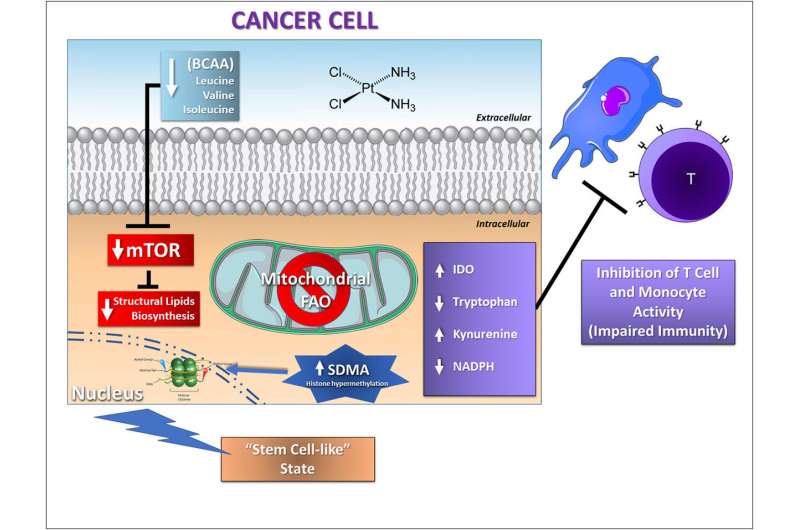Platinum resistance in gynecologic malignancies: Response and overall survival predicted by biochemical signature

Investigators at Nagourney Cancer Institute in collaboration with colleagues at the Federal University of Sao Paulo, Brazil, University of California, Irvine and Todd Cancer Institute reported today in a paper published by Gynecologic Oncology that metabolic signatures found in the blood of gynecologic cancer patients can identify those at the highest risk of relapse. The results could herald a future in which oncologists could use a blood test done at the time of diagnosis to better manage patients with advanced gynecologic malignancies.
Platinum resistance, defined as the lack of response or evidence of clinical relapse within six months of platinum-based chemotherapy, is an important determinant of survival in gynecologic cancer.
"We used quantitative mass spectrometry to identify metabolic signatures that predict platinum resistance in patients receiving chemotherapy for ovarian and uterine cancers," said Dr. Robert Nagourney, Founder and Medical Director of the Nagourney Cancer Institute. "The study provides a window into human biology that offers the opportunity for better patient outcomes and more rapid and efficient drug targeting."
With the growing interest in human metabolism as an important component of cancer biology, this study in gynecologic cancer is the most recent of several of the team's analyses in breast cancer, multiple myeloma and other cancers that confirms metabolomics' role as one of the most promising platforms in cancer research.
In the study, 47 patients with adenocarcinoma of the ovary or uterus who were candidates for carboplatin plus paclitaxel submitted blood for quantitation of metabolites and surgical specimens for the isolation 3-dimensional organoids used to measure individual patient platinum resistance, ex vivo. Results were correlated with response, time to progression and survival.
The study identified patients with the highest risk of relapse and death with a sensitivity of 92 percent and a specificity of 86 percent.
"With such insight, we are on the cusp of more accurately determining the best course of treatment for those with gynecologic tumors," said Dr. Nagourney.
More information: Paulo D'Amora et al, Platinum resistance in gynecologic malignancies: Response, disease free and overall survival are predicted by biochemical signature: A metabolomic analysis, Gynecologic Oncology (2021). DOI: 10.1016/j.ygyno.2021.08.001
















